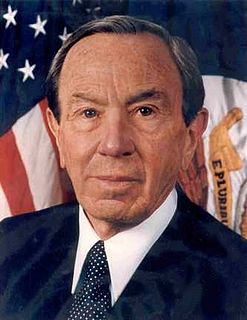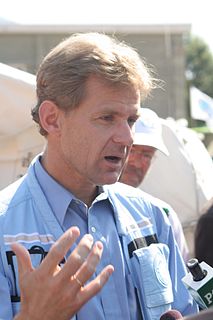A Quote by Stephen Kinzer
In fairness, Latin America's elected civilian leaders have made progress in some areas. They have brought their countries back to international respectability, curbed flagrant human rights violations, and sought to build democratic political institutions.
Related Quotes
The slightest sign of stability is used by local authoritarian leaders to bargain for the sympathies of Western countries that are, for the sake of a balanced relationship, bound to turn a blind eye to obvious, blatant violations of human rights and the deconstruction of democratic institutions in these countries.
No country has a perfect report card. While some countries have strong points in specific areas, they may have serious lacunae in other areas. For instance, some countries have made enormous progress on civil and political rights, but lag in the implementation of economic, social and cultural rights.
Some countries have a parliamentary republic, some are presidential republics and some are still monarchies, but no one sees them as not being democratic. In some countries regional leaders are appointed from the centre and in others they are elected. In Russia, the president is elected through direct secret ballot, and in the United States, the president is elected through a system of electoral colleges.
Latin America was the most obedient follower of the neoliberal regime that was instituted by the United States, its allies and the international financial institutions. They followed it most rigorously. Almost everyone who's followed those rules, including the Western countries, have suffered. And in Latin America they suffered severely.
We must understand the role of human rights as empowering of individuals and communities. By protecting these rights, we can help prevent the many conflicts based on poverty, discrimination and exclusion (social, economic and political) that continue to plague humanity and destroy decades of development efforts. The vicious circle of human rights violations that lead to conflicts-which in turn lead to more violations-must be broken. I believe we can break it only by ensuring respect for all human rights.
Since my election to Congress, I've always been interested in human rights. I really do believe that's America's strength. Yes, we have a strong military; yes, we have a strong economy. But what really makes America the unique nation it is, is that we speak up about human rights, and anti-corruption, and good governance, and democratic institutions. That's what America is known for. That's what inspires people around the world with U.S. leadership.
Our concern for human rights comes to the fore when there are gross violations of human decencies. Then other countries, including China, must recognize that this affects the American attitude towards their country. But towards what precise institutions will it evolve? I think we ought to leave something to history.
The cases involving the question of whether U.S. courts should be open to claims of international human rights violations brought by foreign persons against foreign government officials. And the State Department on the one side has got a very consistent and powerful view that U.S. courts should be open to those claims because there needs to be a place in the world where they can be brought. And those human rights norms ought to be real and enforceable, and we ought to be a beacon to the world.
Things have changed in Latin America now. We mostly have democratic governments in Latin America, so the position of the writer has changed. It is not as Neruda used to say, that a Latin American writer walks around with the body of his people on his back. Now, we have citizens, we have public means of expression, political parties, congress, unions. So, the writer's position has changed, we now consider ourselves to be citizens - not spokespeople for everybody - but citizens that participate in the political and social process of the country.
Donald Trump is much more suspicious of international institutions; much more skeptical of the contributions that America's traditional allies have made; more willing, in some cases, to entertain the possibility of getting along with countries who some would call an adversary, such as Mr. Putin's Russia.

































